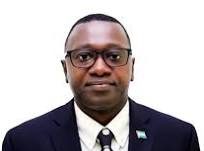By Hassan Osman Kargbo
In a major stride toward enhancing democratic participation and government transparency, the National Council for Civic Education and Democracy (NaCCED), in collaboration with the Ministry of Finance, has concluded a nationwide public engagement campaign on the 2025 Citizens’ Budget.
The simplified version of the national budget—titled “A Citizen’s Guide to the National Budget-2025”—was officially launched in Freetown by the Minister of Finance, Sheku Ahmed Fantamadi Bangura, before being presented in regional consultations across Makeni, Port Loko, Kenema, and Bo.
Under the theme “Improving the Well-being and Quality of Life of Sierra Leoneans,” the Citizens’ Budget aims to simplify complex fiscal information, making it accessible to everyday Sierra Leoneans while fostering a sense of ownership and accountability. The engagements offered citizens a platform to better understand how public resources are allocated and to contribute feedback that ensures the budget reflects local needs and priorities.
Speaking during the engagements, NaCCED Chairman Joseph Munda Bindi emphasized the crucial link between civic education and effective governance. “Civic education is not just about voting, it’s about understanding how government works. When a market woman knows how taxes are spent, or a student understands the education budget, they become active guardians of national progress,” Bindi stated.
He described the national budget as a “social contract” between the government and the people, underscoring the importance of public awareness and involvement in fiscal matters.
In Makeni, Paramount Chief Bai Nakarie N’Kolo II lauded the initiative for bridging the information gap between the government and citizens, noting that informed communities are better positioned to engage constructively. Mathew Thorlie, speaking for persons with disabilities, commended the inclusive approach, highlighting that marginalized voices were given space to be heard.
In Port Loko, North-West Region, Mayor Alie Badara Tarawallie encouraged residents to use the Citizens’ Budget as a tool to hold local authorities accountable. John Kanu from the Sierra Leone Union on Disability Issues (SLUDI) pledged to distribute the budget information widely within disabled communities.
Kenema’s Deputy Mayor Rugiatu Koroma called for increased tax compliance, linking it directly to improved service delivery. Disability advocate Amara Kalie expressed gratitude for being part of the discussions, saying the initiative affirmed their value in the national dialogue.
In Bo, Mayor Kobba Musa urged citizens to monitor public spending to ensure government accountability. Madam Rosaline Belmoh, a representative of persons with disabilities, vowed to spread awareness of the budget’s priorities within her community.
Resident Minister South, Chief John Abu, called the budget “the government’s plan for the people,” and encouraged Sierra Leoneans to stay informed and engaged. Civil society representatives across all regions echoed the need for more grassroots-level sessions to ensure no citizen is left behind in the national governance conversation.
To further improve accessibility, NaCCED has produced a 15-minute animated video breaking down the budget in simple terms. The video will be translated into multiple local languages and disseminated via national radio, community centres, and solar-powered TVs distributed to chiefdoms.
This initiative marks a key step in deepening participatory democracy in Sierra Leone. By demystifying public finance and including marginalized voices, the Citizens’ Budget is helping to foster a culture of transparency, accountability, and civic empowerment across the country.












